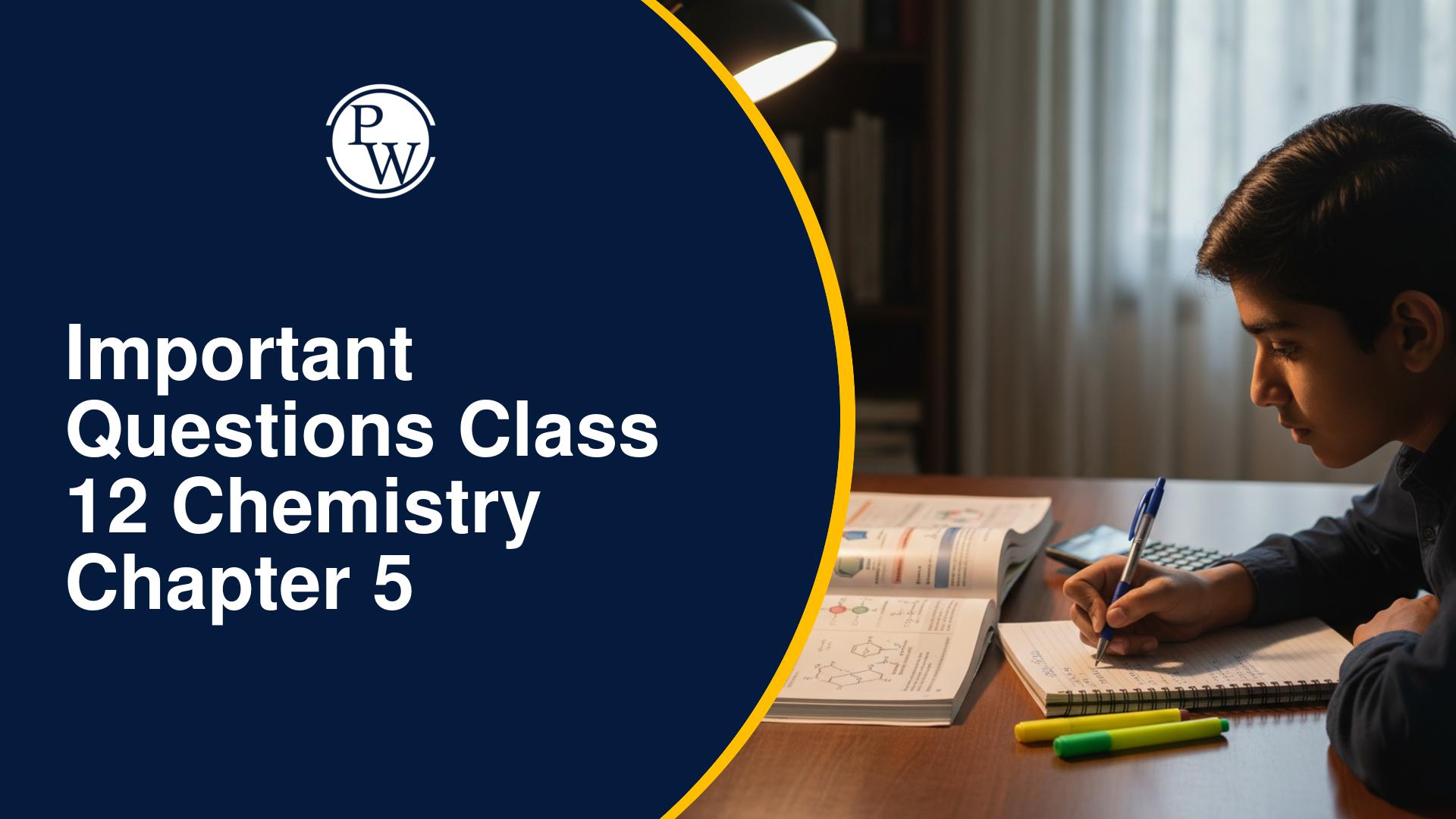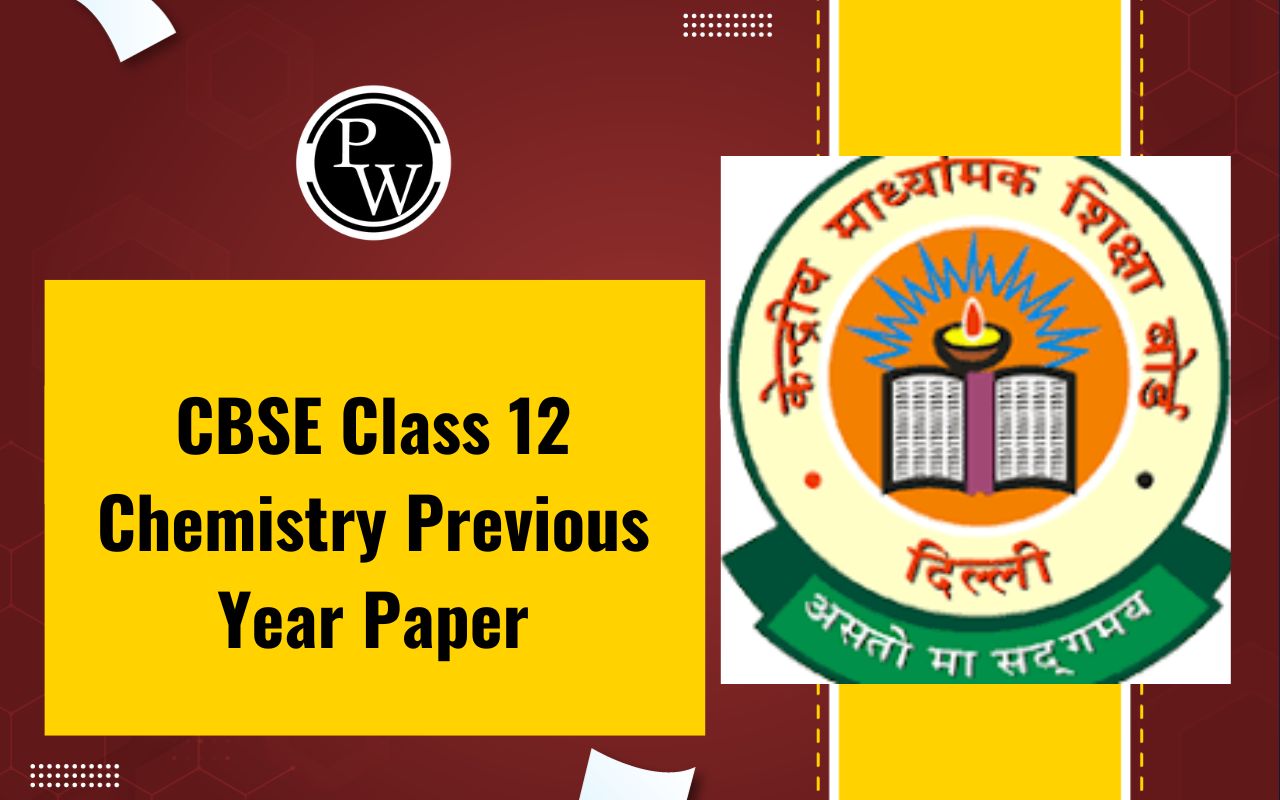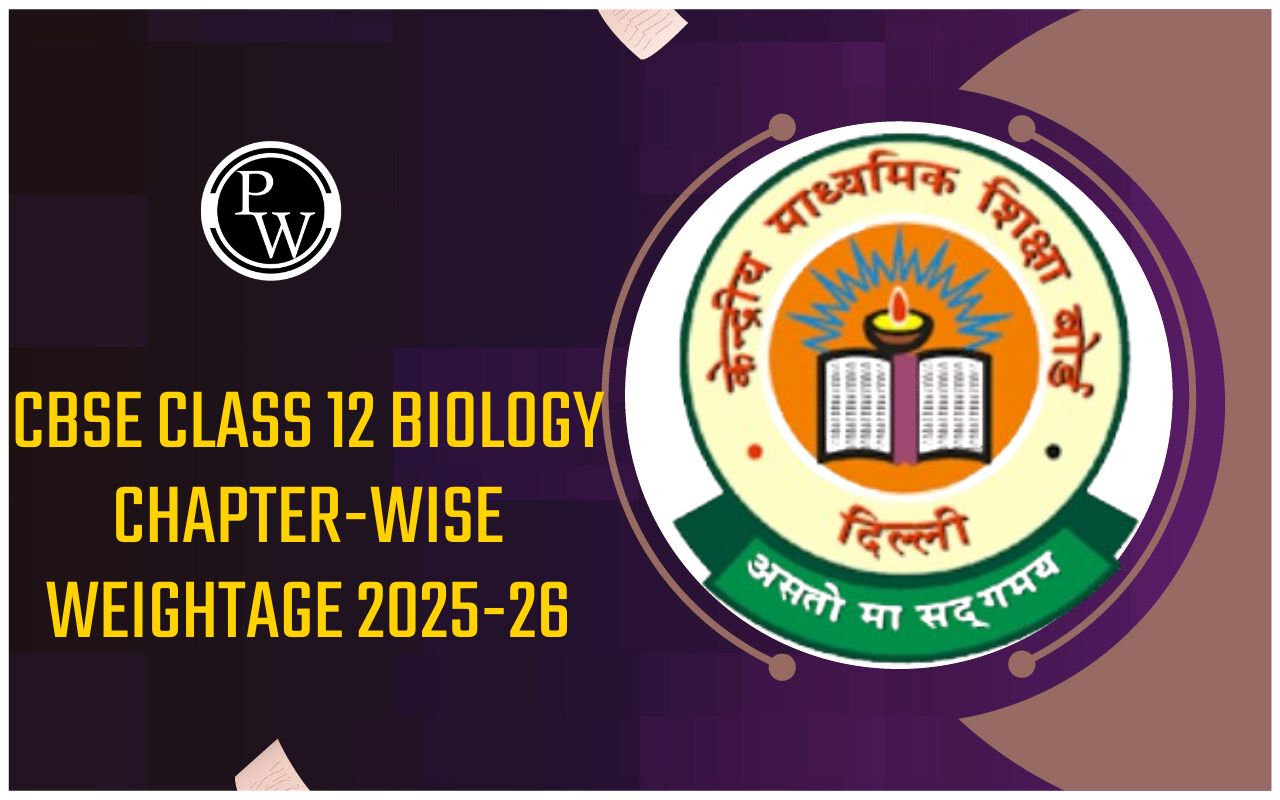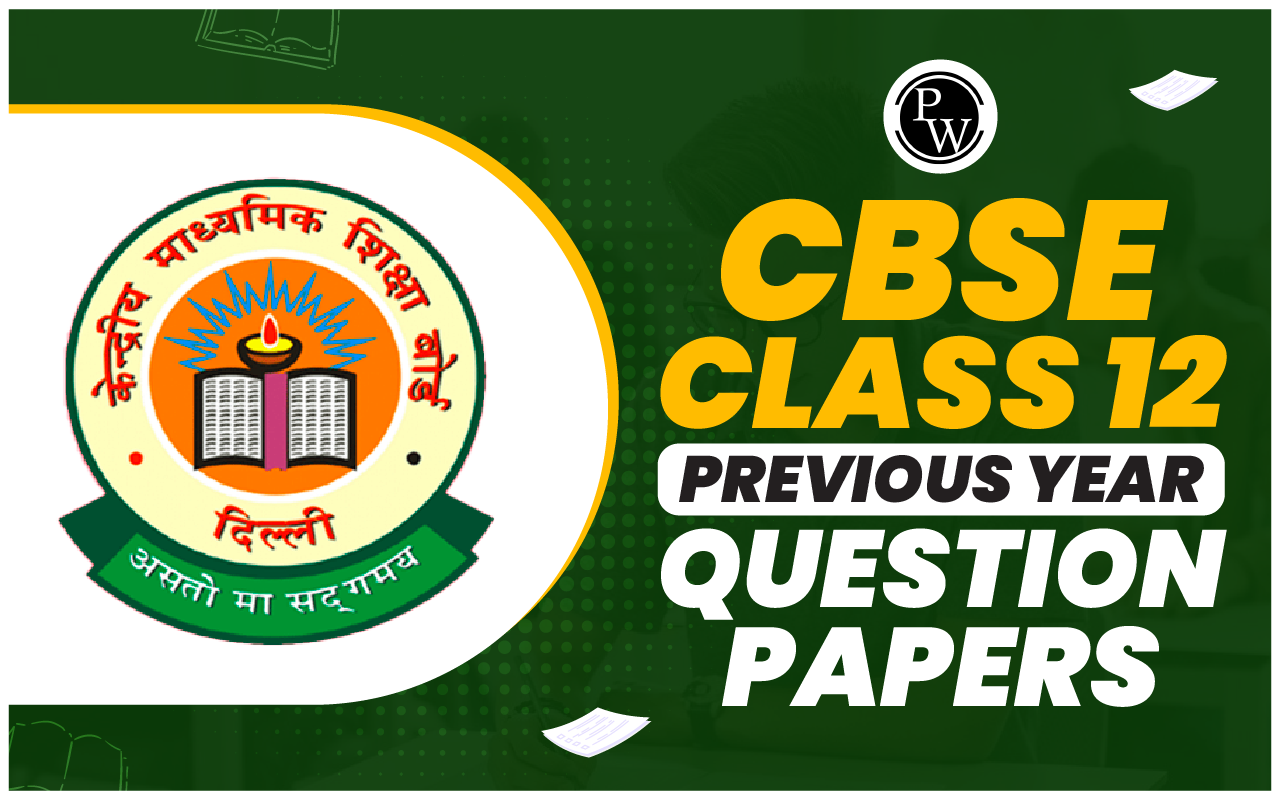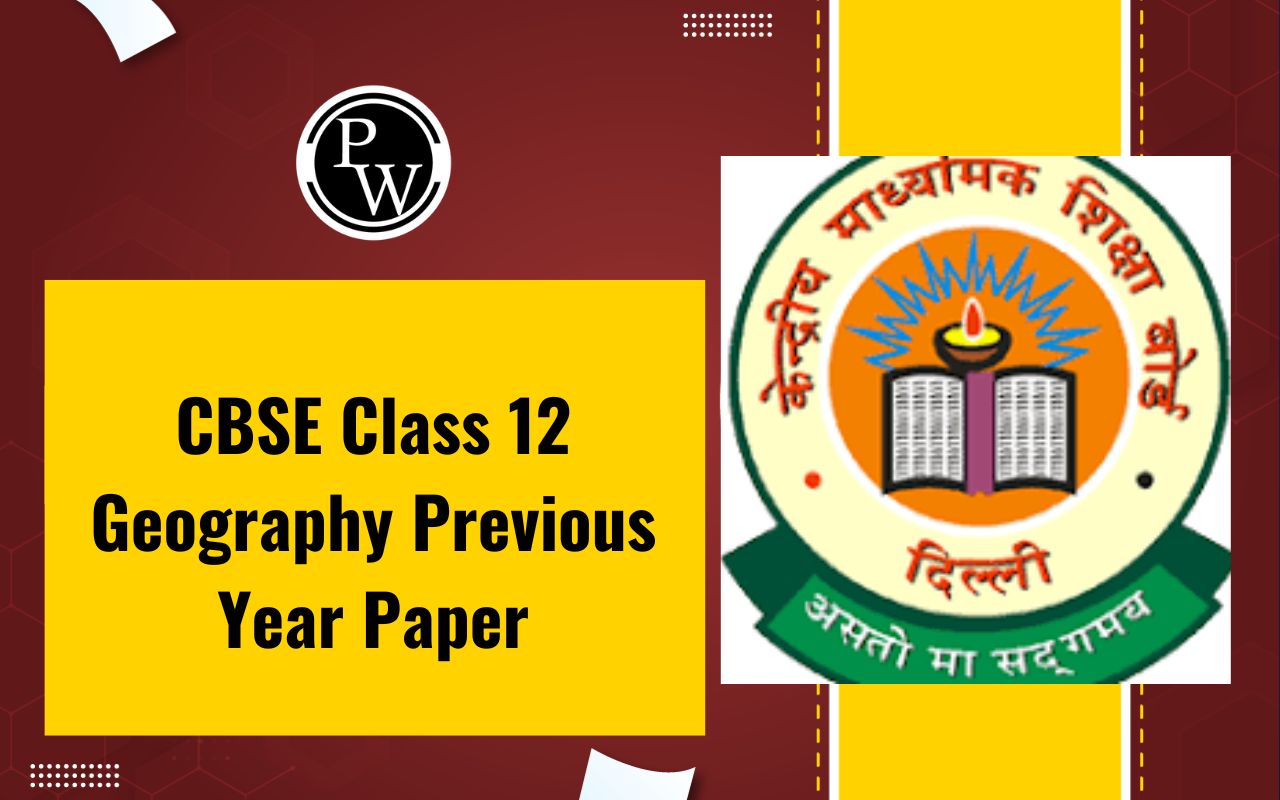
CBSE Class 12 Arts Syllabus 2024-25 : The Central Board of Secondary Education (CBSE) has released the Class 12 Arts Syllabus for the academic year 2024-25. The updated syllabus outlines the subjects and topics students need to study, ensuring alignment with the latest educational standards.
It covers core subjects such as History, Geography, Political Science, Sociology, Psychology, and Economics, along with optional subjects like Entrepreneurship, Home Science, and Physical Education. The syllabus is designed to promote critical thinking, creativity, and a deeper understanding of humanities subjects, helping students prepare effectively for board exams.
CBSE Class 12th Arts Syllabus 2024-25 PDF Download
The CBSE Class 12th Arts Syllabus for the academic session 2024-25 has been designed to include all essential topics and chapters necessary for a strong academic foundation. This syllabus not only prepares students for their board exams but also equips them with the knowledge required for various competitive exams. The Arts stream offers a diverse range of subjects, allowing students to select those aligned with their interests and future career goals.
To facilitate easy access, CBSE provides subject-wise PDF files detailing topics, chapters, and marks weightage for each subject. By downloading these PDFs, students can plan their studies effectively and achieve academic success.
Here are the subject-wise download links for the syllabus:
| Subjects | Download Links |
|---|---|
| CBSE Syllabus for History | Download PDF |
| CBSE Syllabus for Geography | Download PDF |
| CBSE Syllabus for Political Science | Download PDF |
| CBSE Syllabus for Economics | Download PDF |
| CBSE Syllabus for English Elective | Download PDF |
| CBSE Syllabus for Sociology | Download PDF |
| CBSE Syllabus for Psychology | Download PDF |
| CBSE Syllabus for Legal Studies | Download PDF |
| CBSE Syllabus for Entrepreneurship Syllabus | Download PDF |
CBSE Class 12 Arts Syllabus 2024-25 (All-Subjects)
The CBSE Class 12 Arts Syllabus for the academic year 2024-25 is created to provide students with an in-depth understanding of humanities, social sciences, and related disciplines. The syllabus covers essential topics and chapters across a wide range of subjects, including History, Geography, Political Science, Economics, Sociology, and Psychology. The curriculum emphasizes the development of critical thinking, analytical abilities, and creativity, preparing students for higher education and various competitive exams.
Below is a detailed overview of the subject-wise syllabus for the Arts stream in Class 12:
CBSE Class 12 English Syllabus 2024-25
The CBSE Class 12 English syllabus for the academic year 2024-25 is structured to assess students understanding of language skills, creativity, and comprehension through a variety of exercises and assessments. The syllabus is divided into three main sections: Reading Skills, Creative Writing Skills, and Literature Textbook and Supplementary Reading Text.
|
Assessment Type
|
Marks
|
|
Theory Exam
Reading Skills
|
(22+18+40=80)
22
18
40
|
|
Internal Assessment
|
(10+10=20)
10 (5+5)
10
|
|
100
|
CBSE Class 12 History Syllabus 2024-2025
The Central Board of Secondary Education (CBSE) has released the updated Class 12 History Syllabus for the academic year 2024-2025. This syllabus aims to provide a detailed understanding of key historical events, themes, and periods, enabling students to develop critical thinking, analytical skills, and a deep appreciation of the past. The syllabus is divided into three parts, each focusing on different themes in Indian history.
|
Themes in Indian History
|
Part—I
|
25 Marks
|
|
|
Theme No.
|
Theme Title
|
Periods
|
Marks
|
|
1
|
Bricks, Beads and Bones
The Harappa Civilisation
|
15
|
25
|
|
2
|
Kings, Farmers and Towns
Early States and Economies (c.600 BCE600 CE)
|
15
|
|
|
3
|
Kingship, Caste and class
Early Societies (c. 600 BCE600 CE)
|
15
|
|
|
4
|
Thinkers, Beliefs and Buildings
Cultural Developments (c. 600 BCE600 CE)
|
15
|
|
|
Themes in Indian History
|
Part—II
|
25 marks
|
|
|
5
|
Through the eyes of Travellers
Perceptions of Society (c. tenth to seventeenth centuries)
|
15
|
25
|
|
6
|
Bhakti-Sufi Traditions
Changes in Religious Beliefs and Devotional Texts (c. eighth to eighteenth centuries)
|
15
|
|
|
7
|
An Imperial Capital – Vijayanagar (c. fourteenth to sixteenth centuries)
|
15
|
|
|
8
|
Peasants, zamindars and the States Agrarian Society and the Mughal Empire (c.
sixteenth-seventeenth centuries)
|
15
|
|
|
Themes in Indian History Part—III 25 marks
|
Part-III
|
||
|
Theme No.
|
Theme Title
|
Periods
|
Marks
|
|
9
|
Colonialism and The Countryside
Exploring Official Archives
|
15
|
25
|
|
10
|
Rebels and Raj
1857 Revolt and its Representations
|
15
|
|
|
11
|
Mahatma Gandhi and the National Movement
Civil Disobedience and Beyond
|
15
|
|
|
12
|
Framing of the Constitution
The Beginning of a New Era
|
15
|
|
|
Including Map work of the related Themes
|
15
|
5
|
|
|
Theory Total
|
80
|
||
|
Project Work
|
25
|
20
|
|
|
TOTAL
|
220
|
100
|
CBSE Class 12 Geography Syllabus 2024-2025
The CBSE Class 12 Geography Syllabus for the academic year 2024-2025 helps students explore the physical and human geography of the world and India. The syllabus focuses on the interrelationship between people and their environment, examining geographical processes, patterns, and phenomena. It enhances skills like map reading, data interpretation, and critical thinking, which are essential for understanding geography in daily life.
|
Chapter No.
|
Chapter Name
|
No. of periods
|
Weightage
|
|
Unit I
|
|||
|
1
|
Human Geography
|
7
|
3
|
|
Unit II
|
|||
|
2
|
The World Population Density Distribution and Growth
|
9
|
8
|
|
3
|
Human Development
|
7
|
|
|
Unit III
|
|||
|
4
|
Primary Activities
|
12
|
19
|
|
5
|
Secondary Activities
|
10
|
|
|
6
|
Tertiary and Quaternary Activities
|
10
|
|
|
7
|
Transport, Communication and Trade
|
15
|
|
|
8
|
International Trade
|
10
|
|
|
Map Work (Based on identification of features on World Political Map)
|
10
|
5
|
|
|
Total
|
90
|
35
|
|
CBSE Class 12 Political Science Syllabus 2024-2025
The CBSE Class 12 Political Science Syllabus for the academic year 2024-2025 covers a comprehensive range of topics to help students understand political systems, governance, democracy, and global relations. It develops critical thinking and a deeper understanding of how political events and processes shape the world. The syllabus includes two sections: Indian Politics and Contemporary World Politics, each covering a variety of political ideas, ideologies, and events.
CBSE Class 12 Political Science Syllabus Part A: Contemporary World Politics
|
Chapter No.
|
Chapter Name
|
Marks Allotted
|
|
1
|
The End of Bipolarity
|
6
|
|
2
|
Contemporary Centres of Power
|
6
|
|
3
|
Contemporary South Asia
|
6
|
|
4
|
International Organizations
|
6
|
|
5
|
Security in the Contemporary World
|
6
|
|
6
|
Environment and Natural Resources
|
6
|
|
7
|
Globalisation
|
4
|
|
|
Total
|
40
|
CBSE Class 12 Political Science Syllabus Part B: Politics In India Since Independence
|
Chapter No.
|
Chapter Name
|
Marks Allotted
|
|
1
|
Challenges of Nation-Building
|
6
|
|
2
|
Era of One-Party Dominance
|
4
|
|
3
|
Politics of Planned Development
|
2
|
|
4
|
India’s External Relations
|
6
|
|
5
|
Challenges to and Restoration of the Congress System
|
4
|
|
6
|
The Crisis of Democratic Order
|
4
|
|
7
|
Regional Aspirations
|
6
|
|
8
|
Recent Developments in Indian Politics
|
8
|
|
|
Total
|
40
|
CBSE Class 12th Sociology Syllabus 2024-25
The CBSE Class 12th Sociology Syllabus for the academic year 2024-25 covers a wide range of topics designed to help students understand society, social institutions, and social change. The syllabus develops critical thinking and a deeper understanding of social processes, structures, and relationships. It is divided into two parts: Indian Society and Social Change and Development in India, which explore various sociological concepts and contemporary issues.
|
Unit Name
|
Marks
|
||
|
A
|
Indian Society
|
|
|
|
|
1. Introducing Indian Society
|
Non- evaluative
|
0
|
|
|
2. The Demographic Structure of Indian Society
|
10
|
10
|
|
|
3. Social Institutions: Continuity and Change
|
10
|
12
|
|
|
5. Patterns of Social Inequality and Exclusion
|
10
|
18
|
|
|
6. The Challenges of Cultural Diversity
|
10
|
22
|
|
|
7. Suggestions for Project Work
|
Non- evaluative
|
10
|
|
|
Total
|
40
|
|
|
B
|
Social Change and Development in India
|
|
|
|
|
8. Structural Change
|
5
|
8
|
|
|
9. Cultural Change
|
5
|
12
|
|
|
11. Change and Development in Rural Society
|
10
|
10
|
|
|
12. Change and Development in Industrial Society
|
10
|
12
|
|
|
15. Social Movements
|
10
|
18
|
|
|
Total
|
40
|
|
|
|
Grand Total
|
80
|
132
|
CBSE Class 12 Economics Syllabus 2024-25
The CBSE Class 12 Economics Syllabus for the academic year 2024-25 covers both microeconomics and macroeconomics, helping students develop a comprehensive understanding of economic principles, concepts, and real-world applications. The syllabus is designed to provide students with the knowledge necessary to analyze and evaluate economic activities and policy decisions at both the national and international levels.
|
Units
|
|
Marks
|
Periods
|
|
Part A
|
Introductory Macroeconomics
|
|
|
|
|
National Income and Related Aggregates
|
10
|
30
|
|
|
Money and Banking
|
06
|
15
|
|
|
Determination of Income and Employment
|
12
|
30
|
|
|
Government Budget and the Economy
|
06
|
17
|
|
|
Balance of Payments
|
06
|
18
|
|
|
|
40
|
|
|
Part B
|
Indian Economic Development
|
|
|
|
|
Development Experience (1947-90) and Economic Reforms since 1991
|
12
|
28
|
|
|
Current Challenges facing Indian Economy
|
20
|
50
|
|
|
Development Experience of India – A Comparison with Neighbours
|
08
|
12
|
|
|
Theory Paper (40+40 = 80 Marks)
|
40
|
|
|
|
Total
|
80
|
200
|
|
Part C
|
Project Work
|
20
|
20
|
CBSE Class 12 Psychology Syllabus 2024-25
The CBSE Class 12 Psychology Syllabus for the academic year 2024-25 provides students with an in-depth understanding of human behavior, mental processes, and psychological concepts. It is designed to help students explore the various aspects of psychology, including individual and group behavior, as well as psychological theories and applications. The syllabus includes topics related to social psychology, psychological disorders, and human development, enabling students to connect theory with practical experiences.
|
S.
No.
|
Unit Name
|
Marks
|
No. of Periods
|
|
I
|
Variations in Psychological Attributes
|
13
|
30
|
|
II
|
Self and Personality
|
13
|
32
|
|
III
|
Meeting Life Challenges
|
9
|
23
|
|
IV
|
Psychological Disorders
|
12
|
30
|
|
V
|
Therapeutic Approaches
|
9
|
25
|
|
VI
|
Attitude and Social Cognition
|
8
|
16
|
|
VII
|
Social Influence and Group Processes
|
6
|
14
|
|
|
TOTAL
|
70
|
170
|
CBSE Class 12 Entrepreneurship Syllabus 2024-25
The CBSE Class 12 Entrepreneurship Syllabus for the academic year 2024-25 provides students with an understanding of how businesses and enterprises operate, along with the process of developing and managing an entrepreneurial venture. The syllabus develops students to think creatively and strategically, focusing on the key aspects of entrepreneurship, business planning, finance, and the legal environment of businesses.
| S.No. | Unit | No. of Periods | Marks |
|---|---|---|---|
| 1 | Entrepreneurial Opportunity | 40 | 30 |
| 2 | Entrepreneurial Planning | 40 | — |
| 3 | Enterprise Marketing | 40 | 20 |
| 4 | Enterprise Growth Strategies | 20 | — |
| 5 | Business Arithmetic | 40 | 20 |
| 6 | Resource Mobilization | 20 | — |
| Total | 200 | 70 | |
| Project Work | 40 | 30 | |
| Grand Total | 240 | 100 |
CBSE Class 12 Arts Exam Pattern for 2025 Board Exam
The CBSE Class 12 Exam Pattern For Arts for the 2025 Board Exam brings several key changes aimed at testing students conceptual understanding, critical thinking, and ability to apply knowledge. The new pattern aligns with modern educational practices, focusing on competency-based assessments, analytical skills, and real-world applications, while reducing the emphasis on rote learning.
New Exam Pattern for Class 12 Arts:
Competency-Based Questions (50% Weightage) : A significant portion of the exam (50%) will consist of competency-based questions , which include:
- Multiple Choice Questions (MCQs)
- Case-Based Questions
- Source-Based Integrated Questions
These questions are designed to assess students' ability to apply knowledge and solve problems in real-life scenarios, moving away from simple recall and rote memorization.
Select Response Type Questions (MCQs) (20% Weightage)
- MCQs will account for 20% of the exam and will test students' understanding and ability to quickly apply the concepts learned.
- These questions may cover a wide range of topics, encouraging students to recall and apply their knowledge efficiently.
Constructed Response Questions (30% Weightage)
- Traditional Short Answer Questions (SAQs) and Long Answer Questions (LAQs) will remain part of the exam, making up 30% of the total marks.
- These questions will test students' ability to write detailed answers, demonstrate their analytical skills, and explain their understanding of various concepts.
Summary of Weightage Distribution:
- Competency-Based Questions (MCQs, Case-Based, Source-Based) : 50%
- MCQs (Select Response Type Questions) : 20%
- Short Answer/Long Answer Questions : 30%
CBSE Class 12th Arts Syllabus FAQs
Is the CBSE released syllabus for 2024-25?
What are the subjects for 12th class arts 2024?
Are there any changes in the weightage for different types of questions in the 2024-25 exams?
What is the weightage of project work and internal assessment in the CBSE Class 12 Arts stream?



